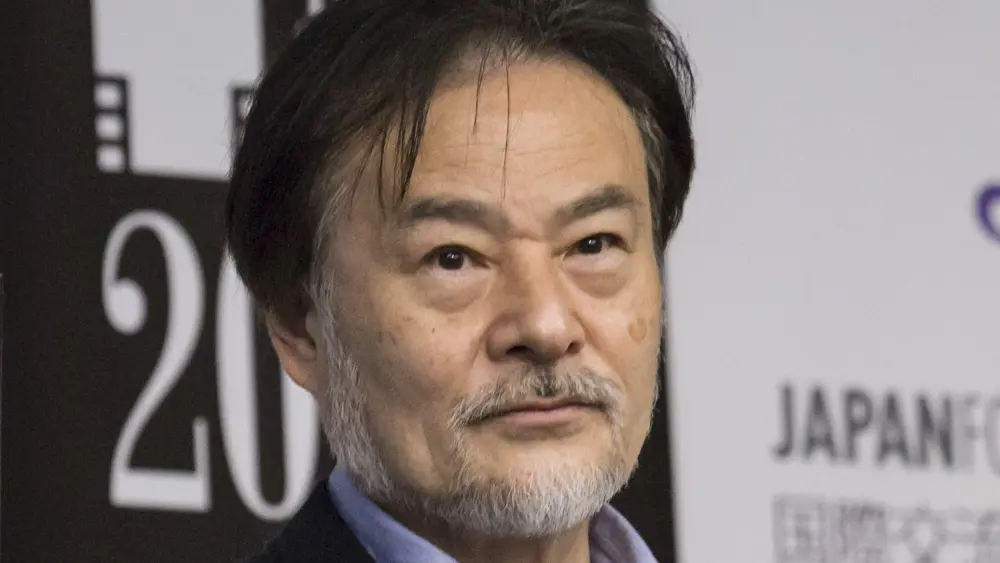Kurosawa Kiyoshi: An enduring visionary in Japanese cinema
A relentless spirit at 69
Earlier this year, as the guest of honor at the Asian Film Awards, Kurosawa Kiyoshi showcased an unwavering resolve in his craft. A few months and several accolades later, his determination remains unshaken.
“I turned 68 last year. I’m not sure there are many directors my age making two films in one year,” Kurosawa said.
Now, at 69, with three completed films in 2024—mid-length horror Chime, revenge-thriller remake Serpent’s Path, and actioner Cloud, endorsed as Japan’s Oscar contender—Kurosawa’s energy is nothing short of inspiring. He recently wrapped up a series of publicity events, award speeches, and a masterclass at the esteemed Busan festival. This week, he continues his streak with another masterclass at the Tokyo International Film Festival as part of the Asian Film Students’ Exchange Program.
Innovation over tradition
What drives Kurosawa is his proclivity for seizing opportunities that allow for on-screen experimentation. This inventive spirit keeps him from getting bogged down in the minutiae of production or fundraising.
“For Chime, a producer approached me and asked to make a 45-minute film. It was neither for streaming nor cinematic purposes,” explained Kurosawa. Given absolute flexibility, he decided on a horror genre—bizarre, strange, but not avant-garde. The result? A psychological teaser that critics have compared to a pilot for an as-yet-unmade TV series.
Chime’s plot revolves around the mental deterioration of a culinary teacher interacting with disturbing students and a dysfunctional family. The framing is crystal clear, but the intentions remain unsettlingly ambiguous.
Revisiting old successes with a new lens
Serpent’s Path hit Japanese cinemas before debuting at the San Sebastian and Busan festivals. This violent drama-thriller, filmed in French, revisits Kurosawa’s own 1998 classic.
Years ago, a French producer casually asked Kurosawa which of his films he would choose to remake. Without hesitation, he said Serpent’s Path. Last year, the producer came back with a budget, ready to film in France. Grasping the opportunity, Kurosawa agreed immediately.
“One reason to redo the film was the universal revenge-themed screenplay by my friend Takahashi Hiroshi,” Kurosawa said. The original was low-budget, tied to the Yakuza milieu. This remake avoids Yakuza references and switches the protagonist from male to female, adding different characters and a fresh narrative twist.
Breaking stereotypes with action-packed innovation
When preparing Cloud, Kurosawa aimed to rethink the action genre. “I had been eager to make an action film. Many Japanese action films are rooted in fantasy, either Yakuza gangsters or serial killers. I wanted a more ordinary protagonist, someone thrust into an unusual, violent situation,” he explained.
Despite his extensive track record, Kurosawa faced difficulty in securing funding. Investors were hesitant about his action genre experiment until the popular actor Suda Masaki joined the project, bringing the necessary financial backing. “I wanted someone a little dirty. Suda transforms into ordinary very well,” Kurosawa noted. “He could interpret my minimal script without many questions.”
Leaning into a minimalist style
Kurosawa’s scripts are usually barebones, allowing for interpretation on set. He rarely includes detailed descriptions of settings, often saying, “This is all I know for now.” While he usually sticks to his original lines of dialogue, he refrains from writing about subjects he’s unfamiliar with, preferring to experience them firsthand before incorporating them into his work.
The genre debate
In Busan, Kurosawa was frequently labeled a genre film specialist, a title he both embraces and dismisses.
“To me, a genre film is just a film,” he remarked. He also praised Korean filmmakers for their genre film production, expressing mild envy and noting that Japanese filmmakers have diverged in other directions.
Kurosawa’s journey into genre films was shaped by his early days working with 8mm films, where capturing sound was a challenge, pushing him towards simplified dialogue and genre-focused storytelling.
A bridge between commercial and artistic cinema
Today’s Japanese filmmaking landscape is divided. Commercial filmmakers focus on the domestic market, while a more sensitive group aims to expand internationally, developing their unique styles. Kurosawa sees himself as a blend of both, pioneering Japanese foreign co-productions and working abroad on various projects, including the aptly named To the Ends of the Earth in collaboration with Uzbekistan’s Uzbekkino.
Respecting the new generation
When asked about younger Japanese filmmakers, Kurosawa praised Drive My Car director Hamaguchi Ryusuke for his diverse and experimental approach.
“Hamaguchi is very diverse, always trying different paths and making films distinct from mine. We speak often, but not about our work.”
Kurosawa’s enduring willingness to experiment and his open-mindedness towards genre boundaries ensure he remains a pivotal figure in cinema. Follow us for more updates on the latest in film and television.

 Italian
Italian







